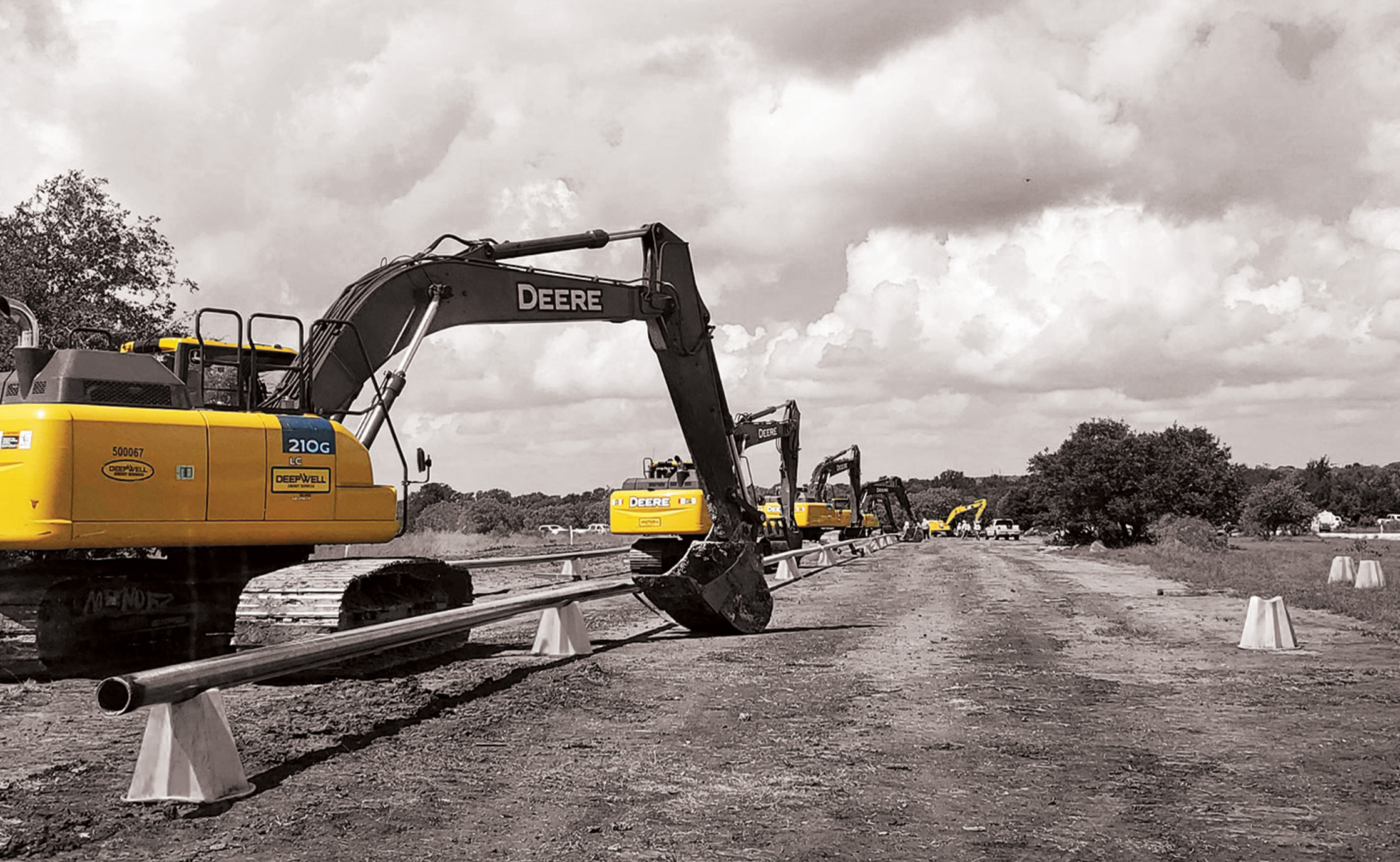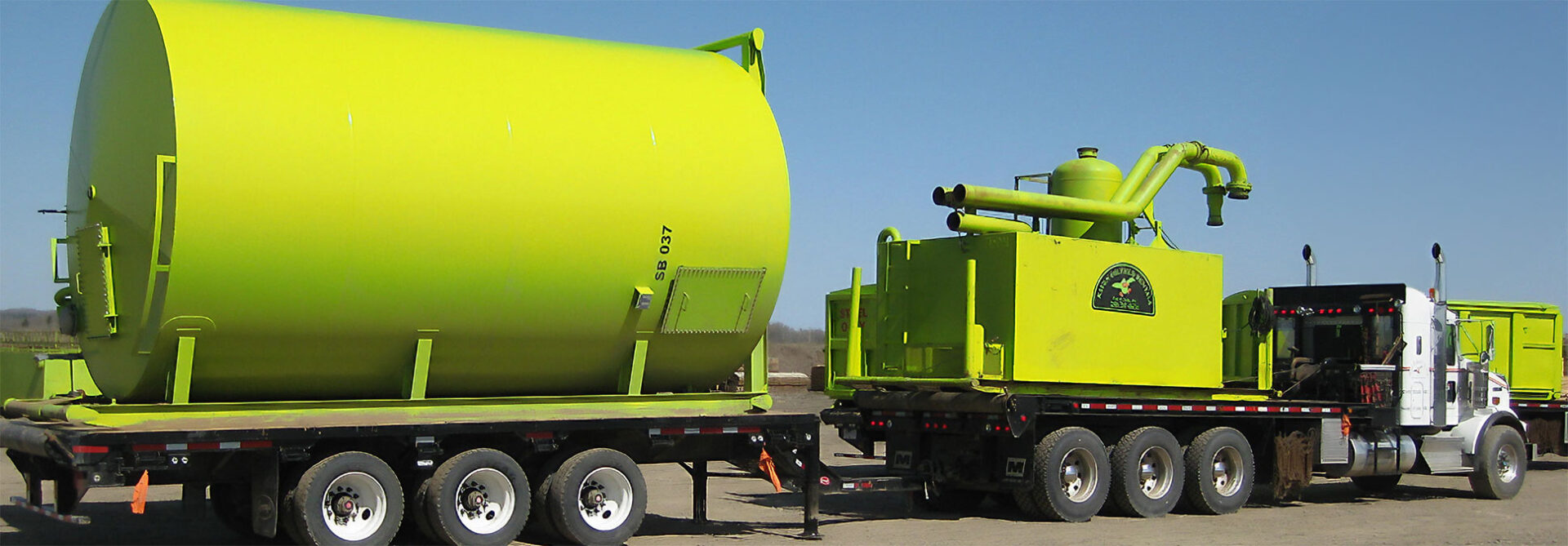Superior Rentals fusion machines: safety practices every technician should know
Wiki Article
A Comprehensive Guide to the Different Sorts Of Oil Field Equipment and Pipeline Equipment Available
The oil and gas market depends greatly on customized tools for efficient removal and transportation. Various types of machinery, from piercing rigs to storage space tanks, play crucial roles in this complex procedure. Each piece of equipment offers distinctive features that add to general functional success. Comprehending these elements is crucial for any person included in the market. As the industry develops, so also do the technologies that support it. What advancements are on the horizon?
Drilling Rigs: The Backbone of Oil Expedition
Drilling rigs function as the necessary machinery in the domain name of oil expedition, making it possible for companies to access hydrocarbon reserves hidden deep below the Earth's surface area. These rigs can be found in various kinds, consisting of land rigs, offshore rigs, and mobile devices, each created to run in specific environments. Geared up with innovative innovation, piercing rigs can pass through geological formations with accuracy, making sure efficient source extraction. The structural honesty and operational abilities of these rigs are vital, as they should stand up to severe problems and substantial stress. The option of a drilling gear influences the overall job expense and timeline, making it an important consideration for oil firms looking for to maximize their exploration initiatives and maximize efficiency in their operations.Pumps: Vital for Fluid Movement
In the oil extraction process, the role of pumps is significant, assisting in the motion of liquids throughout various phases of production. Pumps are essential for moving unrefined oil, water, and other fluids from underground tanks to the surface area and then with pipes to refineries. They come in numerous types, consisting of centrifugal, positive displacement, and submersible pumps, each serving details functions based on the fluid attributes and functional requirements. Centrifugal pumps are generally used for their efficiency in high-flow applications, while favorable variation pumps master handling thick liquids. The choice of pump influences total effectiveness, operational safety and security, and maintenance prices. Proper selection and maintenance of pumps are important for optimizing manufacturing and lessening downtime in oil area procedures.Shutoffs: Controlling Circulation and Pressure

Valves play a crucial role in handling the circulation and stress of fluids within oil areas and pipes. Various kinds of shutoffs serve distinct applications, each developed to meet particular features basic for effective operation - Superior Oilfield Rentals Texas. Understanding the qualities and uses these valves is important for maximizing system efficiency and security
Sorts of Valves
Crucial parts in oil area operations, shutoffs play an important duty in regulating the flow and pressure of fluids within pipes and devices. Numerous sorts of shutoffs are made use of to fulfill the varied requirements of oil and gas manufacturing. Common types include entrance shutoffs, which give a straight-line circulation and marginal pressure decline; globe valves, recognized for their throttling capabilities; and sphere valves, recognized for their quick on/off control. Additionally, check shutoffs avoid heartburn, while butterfly shutoffs offer a lightweight remedy for controling circulation. Each shutoff kind is made with details materials and configurations to stand up to the extreme problems usually discovered in oil fields, guaranteeing integrity and performance in operations. Understanding these types is vital for efficient system monitoring.Valve Applications and Features
While various kinds of valves offer distinct purposes, their key applications focus on controlling flow and stress within oil and gas systems. Shutoffs such as gateway, world, and ball valves control fluid movement, ensuring peak efficiency and security. Entrance valves are commonly made use of for on/off control, giving marginal circulation resistance. Globe valves, on the various other hand, offer accurate flow law, making them suitable for strangling applications. Ball shutoffs are favored for their quick procedure and tight securing capabilities. Additionally, pressure relief shutoffs are essential for avoiding system overpressure, securing devices stability. In general, the suitable selection and application of valves improve operational efficiency, guaranteeing the trustworthy transport of oil and gas with pipelines and processing facilities.Compressors: Enhancing Gas Transport
Compressors play a vital role in the efficient transportation of all-natural gas, making sure that it moves efficiently with pipelines over lengthy distances. These gadgets raise the pressure of gas, permitting it to get rid of friction and altitude modifications within the pipeline system. In addition, compressors facilitate the balancing of supply and demand, suiting variations in consumption and manufacturing prices. Various kinds of compressors are employed in the industry, consisting of centrifugal, reciprocating, and rotary screw compressors, each offering distinctive benefits based upon the functional requirements. Normal maintenance of these compressors is crucial to maximize efficiency and decrease downtime, eventually contributing to a trusted gas transportation network. Their essential feature highlights the significance of compressors in the general oil and gas facilities.Storage Tanks: Safe and Efficient Liquid Management
Efficient transport of gas counts on different support group, one of which is the correct management of storage space containers. These storage tanks play a necessary function in safely having fluids, guaranteeing that operational performance is preserved while reducing ecological dangers. Created from resilient materials, they are designed to endure high stress and harsh components. Effectively sized and strategically situated, storage tanks facilitate the smooth flow of all-natural gas and other liquids, stopping traffic jams in supply chains. Normal upkeep and surveillance are essential to spot leakages or architectural problems, advertising safety and security and compliance with regulatory criteria. Inevitably, the efficient management of storage space containers is essential for the overall honesty and dependability of the oil and gas sector's fluid handling systems.
Pipeline Systems: Framework for Transport
Pipeline systems serve as the backbone of the oil and gas market, assisting in the reliable transport of hydrocarbons over large distances. These systems include numerous parts, including pipes, shutoffs, pumps, and compressors, all diligently designed to ensure seamless flow. The products made use of in pipeline construction, usually steel or high-density polyethylene, are picked for resilience and resistance to corrosion. Pipeline networks can extend across land and water, linking manufacturing sites to refineries and warehouse. In addition, progressed modern technology allows real-time surveillance of circulation rates and stress levels, improving functional performance. The critical placement of these pipelines minimizes environmental effect while making the most of resource accessibility, thereby playing an important duty in conference power demands internationally.Safety And Security Equipment: Guaranteeing Employee and Environmental Management
The procedure of pipeline systems, while crucial for power transportation, also offers considerable safety obstacles for workers and the environment. Safety devices plays a considerable duty in alleviating these threats. Personal safety devices (PPE) such as helmets, handwear covers, and non-slip shoes safeguards employees from physical risks. In addition, gas discovery systems keep track of for leaks, making sure that hazardous substances do not pose a risk to employees or the surrounding ecological community. Emergency shutdown systems are imperative for quickly stopping procedures throughout a situation, preventing possible catastrophes. Spill containment materials, consisting of absorbents and barriers, are fundamental for minimizing ecological impact. Generally, purchasing all-encompassing safety tools is critical for maintaining functional integrity and shielding both employees and the setting in the oil and gas industry.
Frequently Asked Questions
Exactly how Do I Select the Right Oil Field Equipment for My Job?
Selecting the ideal oil area equipment involves assessing task specs, budget plan restraints, and operational requirements. Take into consideration factors such as tools dependability, compatibility with existing systems, and the distributor's online reputation to assure peak efficiency and security.What Are the Maintenance Needs for Oil Field Equipment?
Maintenance requirements for oil area devices consist of normal evaluations, lubrication, and prompt repairs. Operators must additionally comply with maker standards, monitor performance metrics, and guarantee compliance with security regulations to improve longevity and efficiency.
How Can I Guarantee Compliance With Environmental Laws?
To ensure conformity with ecological guidelines, firms need to carry out normal audits, implement ideal practices, purchase training, keep appropriate documents, and stay updated on regulation (Superior Oilfield pipeline equipment rentals). Partnership with environmental agencies can likewise enhance adherence to policiesWhat Is the Average Lifespan of Pipeline Equipment?
The typical life-span of pipeline tools usually varies from 20 to half a century, depending on aspects such as worldly quality, ecological problems, and upkeep methods. Routine evaluations can significantly affect long life and plumbing pipe functional efficiency.How Do I Safely Transport Oil Field Equipment to Remote Locations?
Carrying oil area devices to remote areas needs mindful planning, consisting of course assessment, securing permits, using proper cars, and guaranteeing safety and security protocols are adhered to. Correct training and interaction among teams are crucial for effective transport.Report this wiki page